Product Description
Our range of portable UCI Hardness Tester are suitable for field-testing and the in-site testing of machine components. We also offer fully automatic version for integration in production or test line. This device is independent of the mains supply. This hardness tester provides comparable degree of accuracy irrespective of the position in which the measurements are taken.
Ultrasonic Hardness Testers intended for quick measuring of metal items hardness in laboratorial, manufacturing and field conditions.
Device is intended for non-destructive testing of production quality in metallurgy, mechanical engineering, aircraft, shipbuilding, atomic industry, oil and gas industry.
Hardness tester functions by UCI method (Ultrasonic Contact Impedance).
Ultrasonic Hardness Testers controls hardness of following:
- Carbonaceous and structural steels
- Items with surface-hardened layers such as cementation, nitride hardening, high frequency current hardening
- Heat-proof, corrosion-proof, non-corrosive steels
- Plated coating (chrome), overlaying
- Items of complicated configuration
Advantages of Ultrasonic Hardness Testers:
- Stable readings independent from force and time of pressing.
- Easy measuring in hard-to-reach areas.
- Ultra-small control area (from 1 mm).
- Control in slots and blind holes from 5 mm (not provided by rival devices).
- Invisible print on mirror-surface.
- Low sensitivity to the curvative of surface, thickness and weight of product.
Features of Ultrasonic Hardness Testers:
- Impact-, dust- and water- proof housing.
- Intuitive graphic interface.
- Bright color graphic display allows working at below zero temperature and stays bright at any lighting.
- Signalization of exceeding of prescribed readings threshold.
- Unique system of statistic data processing and averaging of readings.
- Fast adjustment of readings and programming of additional calibrations to basic scales by 2 or less standard blocks.
- Flexible device memory for recording of readings and their analysis.
- Programming of additional scales calibrations by 2 or less standard test blocks.
- Fast programming of additional scales by 2 to 10 standard test blocks.
UCI Hardness Tester Applications:
1. Weld inspection: Ultrasonic Contact Impedance hardness testers can be used to measure the hardness of welds, including the heat-affected zone (HAZ). This is important for ensuring that the weld is strong and will not fail.
2. Hardness control of metal coatings: UCI hardness testers can be used to measure the hardness of metal coatings, such as chrome plating or zinc plating. This is important for ensuring that the coating is properly applied and will not wear off.
3. Hardness measurement of small parts: Ultrasonic Contact Impedance hardness testers can be used to measure the hardness of small parts, such as screws, nuts, and bearings. This is important for ensuring that the parts are strong enough to meet their intended use.
4. Hardness measurement of thin-walled parts: UCI hardness testers can be used to measure the hardness of thin-walled parts, such as pipes and tubes. This is important for ensuring that the parts are strong enough to withstand pressure.
5. Hardness measurement of complex shapes: UCI hardness testers can be used to measure the hardness of complex shapes, such as gears and castings. This is important for ensuring that the parts are strong enough and will function properly.
UCI hardness testers are a versatile tool that can be used in a variety of industries, including:
1. Automotive: For measuring the hardness of welds, gears, and other components.
2. Aerospace: For measuring the hardness of aircraft parts, such as landing gear and engine components.
3. Manufacturing: For measuring the hardness of machined parts, castings, and forgings.
4. Construction: For measuring the hardness of welds, rebar, and other structural components.
5. Oil and gas: For measuring the hardness of pipes, valves, and other equipment.
UCI Hardness Tester FAQ:
1. What is a UCI hardness tester?
Ans: A Ultrasonic Contact Impedance hardness tester is a portable device used to measure the hardness of metals and alloys using the Ultrasonic Contact Impedance method. It utilizes ultrasonic vibrations to determine the hardness of the material being tested.
2. How does a UCI hardness tester work?
Ans: The UCI hardness tester works by applying a known force through a Vickers or Berkovich indenter onto the surface of the material being tested. A high-frequency ultrasonic wave is then passed through the indenter, and the amplitude of the resulting vibration is measured. The hardness value is calculated based on the relationship between the applied force, the indentation depth, and the amplitude of the ultrasonic wave.
3. What materials can be tested with a UCI hardness tester?
Ans: UCI hardness testers are suitable for testing various metals and alloys, including steel, stainless steel, aluminum, copper, brass, and titanium, among others.
4. What are the advantages of using a Ultrasonic Contact Impedance hardness tester?
Ans: Below are it's advantages:
a. Portability: UCI hardness testers are typically lightweight and compact, making them easy to transport and use in various settings.
b. Non-destructive testing: UCI testing is non-destructive, meaning it does not permanently alter the material being tested.
c. Fast and accurate results: UCI hardness testers provide quick and accurate hardness measurements, allowing for efficient quality control and inspection processes.
5. What are the limitations of UCI hardness testing?
Ans: Below are it's limitations:
a. Surface condition: UCI hardness testing requires a smooth and flat surface for accurate measurements. Rough or uneven surfaces may affect the results.
b. Material thickness: UCI testing is generally suitable for thin materials (typically less than 6 mm thick). Thicker materials may require alternative hardness testing methods.
c. Material composition: UCI hardness testers may not be suitable for all material compositions, particularly those with very low or very high hardness values.
6. How to interpret UCI hardness test results?
Ans: UCI hardness test results are typically presented as a numerical value on a hardness scale, such as the Vickers scale (HV) or the Rockwell scale (HR). Higher numerical values indicate greater hardness.
7. How to calibrate a UCI hardness tester?
Ans: UCI hardness testers should be calibrated regularly according to the manufacturer's instructions to ensure accurate measurements. Calibration typically involves using certified test blocks with known hardness values to verify the accuracy of the instrument.
8. Can a Ultrasonic Contact Impedance hardness tester be used for in-situ testing?
Ans: Yes, UCI hardness testers are often used for in-situ testing, allowing hardness measurements to be taken directly on the workpiece without the need for sample preparation or removal.
9. Are there any safety considerations when using a UCI hardness tester?
Ans: Users should follow all safety guidelines provided by the manufacturer, including wearing appropriate personal protective equipment and ensuring proper handling of the instrument to prevent injury or damage.
10. How to maintain a Ultrasonic Contact Impedance hardness tester?
Ans: Regular maintenance, such as cleaning and calibration, is essential to ensure the continued accuracy and reliability of a UCI hardness tester. Users should refer to the manufacturer's instructions for specific maintenance requirements.

 English
English Spanish
Spanish French
French German
German Italian
Italian Chinese (Simplified)
Chinese (Simplified) Japanese
Japanese Korean
Korean Arabic
Arabic Portuguese
Portuguese
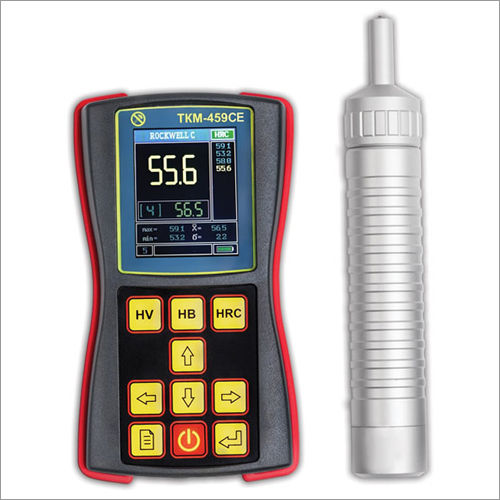

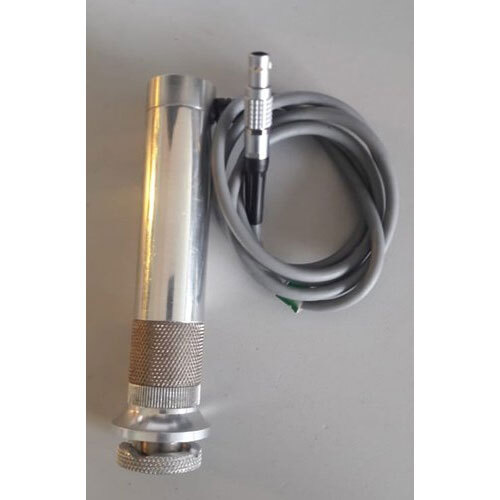
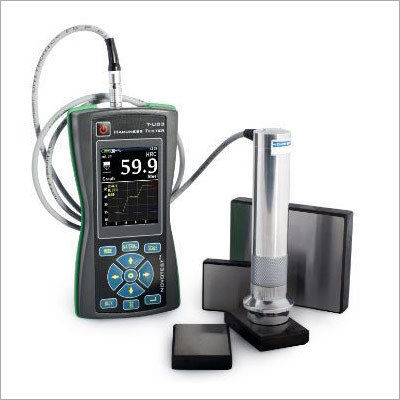
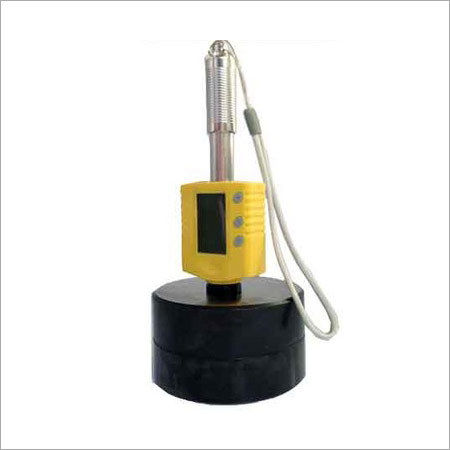
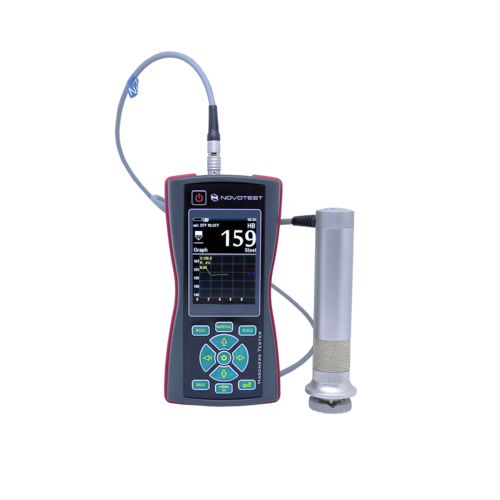
 Call Me Free
Call Me Free
